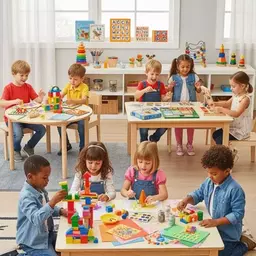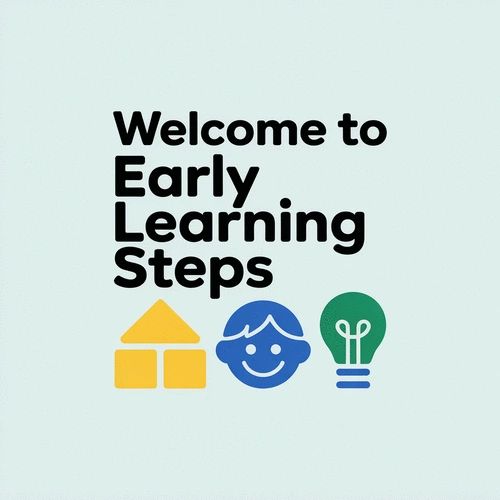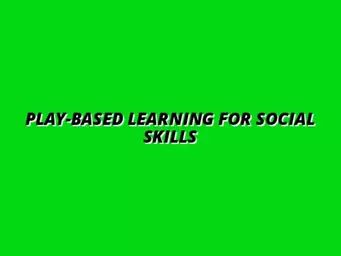Research shows that emotional intelligence can be a game-changer for caregivers, enhancing the quality of care and creating deeper connections with care recipients. What if mastering this skill set could transform your caregiving experience and create a nurturing environment for everyone involved?
What You Will Learn
- Self-awareness is the cornerstone of emotional intelligence, enabling caregivers to understand their own emotions and reactions.
- Effective self-regulation techniques empower caregivers to manage emotions, even in high-stress situations.
- Empathy fosters trust and communication, strengthening the bond between caregivers and care recipients.
- Strong social skills enhance relationships, aiding in smoother interactions and conflict resolution within family dynamics.
- Understanding family dynamics can nurture emotional growth, creating a supportive atmosphere for both caregivers and care recipients.
Key Components of Emotional Intelligence in Caregiving
Emotional intelligence is vital for effective caregiving. The five core components below help caregivers build stronger connections and foster a nurturing environment. Fostering emotional intelligence in kids early on can also lay the groundwork for their future caregiving roles.
Self-Awareness
Recognizing and understanding your own emotions and their influence.
Self-Regulation
Managing emotions effectively in high-stress situations.
Empathy
Understanding and sharing the feelings of care recipients.
Social Skills
Effective communication and interaction with others.
Emotional Awareness
Understanding and responding to others' emotions effectively.
Nurturing Emotional Intelligence: Understanding Its Role in Caregiving
As caregivers, we often find ourselves navigating a complex emotional landscape. Understanding emotional intelligence is crucial, as it directly impacts how we connect with those we care for. At Early Learning Steps, we believe that fostering emotional intelligence is a vital component of effective caregiving, creating a nurturing environment where both caregivers and care recipients can thrive.

Emotional intelligence involves recognizing, understanding, and managing our own emotions, as well as empathizing with others. This skill set not only improves our interactions at home but also enhances the overall well-being of everyone involved. So, let’s dive deeper into what emotional intelligence means in the context of caregiving.
Defining Emotional Intelligence in the Context of Home Care
In the realm of home care, emotional intelligence plays a pivotal role. It encompasses several key aspects, such as:
- Self-awareness: Recognizing and understanding your feelings.
- Self-regulation: Managing your emotions effectively.
- Empathy: Understanding the emotions of those around you.
- Social skills: Navigating social interactions smoothly.
By honing these skills, caregivers can create a more supportive and understanding atmosphere. This, in turn, helps care recipients feel valued and understood, which is essential for their emotional well-being.
The Importance of Emotional Intelligence for Caregivers and Care Recipients
Why is emotional intelligence so critical for both caregivers and care recipients? The answer lies in its profound effects on relationships and communication. Caregivers with high emotional intelligence are better equipped to:
- Recognize stress signals in themselves and others.
- Respond to the emotional needs of their care recipients.
- Foster a sense of trust and safety.
- Enhance overall family dynamics and cooperation.
These elements contribute to a more harmonious caregiving experience, paving the way for positive interactions and stronger connections. For more on positive interaction, consider some mindful parenting for stress relief techniques.
Exploring the Impact of Family Dynamics on Emotional Intelligence
Family dynamics can significantly influence emotional intelligence within a caregiving context. For instance, supportive family structures can nurture emotional growth, while conflicting relationships may hinder it. Consider the following factors:
- Communication styles: Open and honest communication fosters understanding.
- Conflict resolution: Healthy approaches to conflict can enhance emotional learning.
- Support systems: Strong support networks improve emotional resilience.
As we explore these dynamics, let’s remember the importance of cultivating an environment that promotes emotional growth for everyone involved. It’s about creating a space where emotions are acknowledged and valued, leading to richer relationships.
FAQs About Emotional Intelligence in Caregiving
What is emotional intelligence in caregiving?
Emotional intelligence in caregiving refers to a caregiver's ability to recognize, understand, and manage their own emotions, as well as to understand and influence the emotions of those they care for. It includes self-awareness, self-regulation, empathy, and social skills.
Why is emotional intelligence important for caregivers?
Emotional intelligence is crucial for caregivers because it enhances their ability to connect deeply with care recipients, manage stress effectively, improve communication, and foster a nurturing and supportive environment. It leads to better relationships and overall well-being for both parties.
How can self-awareness help a caregiver?
Self-awareness helps caregivers recognize their own emotional triggers and reactions, allowing them to respond more thoughtfully and calmly in challenging situations. This leads to improved self-management and reduces the likelihood of emotional burnout.
What role does empathy play in caregiving?
Empathy allows caregivers to understand and share the feelings of care recipients, building stronger connections, trust, and communication. It helps caregivers provide care that is truly responsive to the emotional needs of the individual.
Can emotional intelligence improve family dynamics?
Yes, strong emotional intelligence can significantly improve family dynamics by fostering open communication, healthy conflict resolution strategies, and robust support systems. This creates a more harmonious and supportive environment for everyone involved in the care network.
Key Components of Emotional Intelligence for Effective Caregiving
As caregivers, understanding the key components of emotional intelligence is essential. Let's break it down into five core aspects that can dramatically enhance our caregiving abilities.
Pro Tip
To enhance your emotional intelligence as a caregiver, consider integrating daily reflection into your routine. Take a few moments each day to journal about your emotional experiences and interactions. This practice can help you identify patterns in your feelings and responses, ultimately leading to improved self-awareness and more effective caregiving.
Key Components of Emotional Intelligence for Effective Caregiving
Understanding the components of emotional intelligence is crucial for effective caregiving. As caregivers, we often face emotional challenges, and recognizing how our emotions impact our decisions is vital. Emotional intelligence consists of several key elements that can significantly enhance our caregiving abilities.
Let’s take a closer look at these components and how they can foster more meaningful connections with those we care for.
Self-Awareness: Recognizing Your Emotions as a Caregiver
Self-awareness is the foundation of emotional intelligence. It involves recognizing our own emotions and understanding how they influence our behavior. As caregivers, we must actively reflect on our feelings and reactions, especially during challenging moments.
- Identify triggers that lead to strong emotional reactions.
- Practice journaling to reflect on daily experiences and emotions.
- Engage in self-assessment exercises to gauge emotional responses.
By enhancing our self-awareness, we can recognize when we need to step back and take a breath, allowing us to respond more thoughtfully to our care recipients.

Self-Regulation: Techniques to Manage Emotions in High-Stress Situations
Self-regulation is all about managing our emotions effectively. This skill helps us stay calm and composed, even in high-stress situations. It's essential for maintaining a positive environment for both caregivers and care recipients.
- Use deep breathing techniques to calm your mind.
- Implement a brief pause before reacting to emotional triggers.
- Practice mindfulness exercises to stay grounded.
By mastering self-regulation, we can create a more supportive atmosphere that promotes emotional well-being for everyone involved.
Empathy: Building Stronger Connections with Care Recipients
Empathy is the ability to understand and share the feelings of others. As caregivers, showing empathy enables us to connect deeply with our care recipients. This emotional connection can lead to improved trust and communication.
- Engage in active listening during conversations.
- Ask open-ended questions to encourage sharing.
- Validate feelings by acknowledging experiences and emotions.
Fostering empathy not only enriches our relationships but also enhances the overall caregiving experience.
Social Skills: Enhancing Communication and Relationships at Home
Social skills encompass our ability to communicate and interact effectively with others. As caregivers, strong social skills are essential for building rapport with care recipients and their families. Parenting tips for emotional growth can also offer insights into developing these skills from a young age.
- Practice clear and open communication.
- Develop conflict resolution strategies to address misunderstandings.
- Encourage collaboration in care planning and decision-making.
By enhancing our social skills, we can create a more harmonious environment that fosters emotional health and well-being.
Emotional Awareness: Understanding Others’ Emotions in Caregiving
Emotional awareness is the ability to recognize and understand the emotions of others. In caregiving, this skill is vital for responding to the needs of care recipients effectively. By developing emotional awareness, we not only provide better support but also validate their feelings.
- Observe non-verbal cues such as body language and facial expressions.
- Check in on how care recipients are feeling regularly.
- Use reflective statements to show understanding.
As we become more attuned to the emotions of others, we can respond with greater compassion and care, enriching the overall caregiving experience.
Recap of Key Points
Here is a quick recap of the important points discussed in the article:
- Emotional intelligence involves self-awareness, self-regulation, empathy, and social skills, crucial for effective caregiving.
- High emotional intelligence in caregivers enhances relationships, communication, and trust with care recipients.
- Family dynamics impact emotional intelligence; open communication and support systems foster emotional growth.
- Practicing self-awareness helps caregivers recognize emotional triggers and improve their responses.
- Self-regulation techniques, like mindfulness and deep breathing, aid in managing emotions during stressful situations.
- Empathy strengthens connections with care recipients, enhancing trust and communication.
- Strong social skills facilitate effective communication and collaboration within caregiving relationships.
- Emotional awareness allows caregivers to understand and respond to the feelings of others, enriching the caregiving experience.









